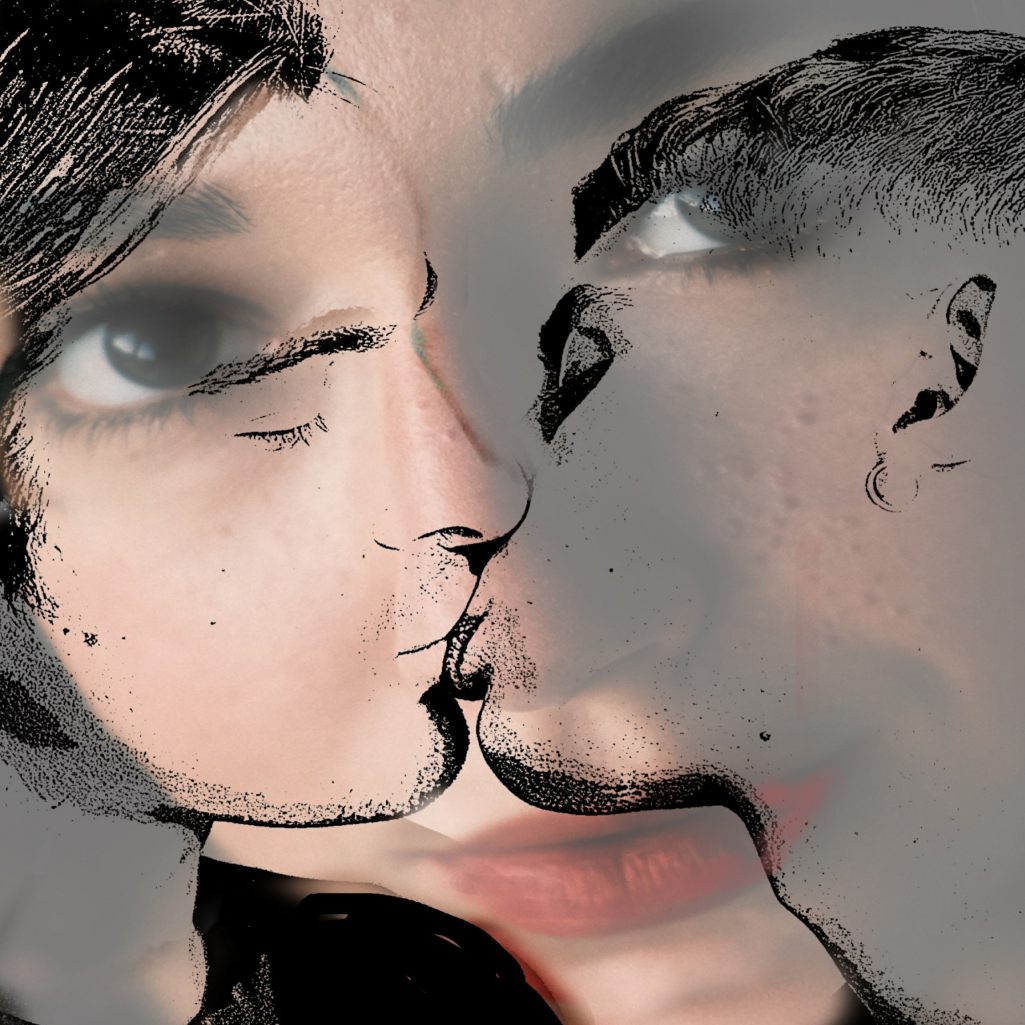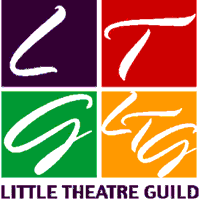- Theatre: Accidental Death of An Anarchist
- Theatre: Ein Komisches Talent
- Theatre: Gaslight®
- Theatre: Hansard
- Theatre: Home, I'm Darling
- Theatre: How to Succeed in Business...
- Theatre: I Love You, You're Perfect, Now Change
- Events (ticketed): Quiz Night 2025
- Theatre: The Cat's Meow
- Theatre: The Crucible
- Theatre: The Duchess of Malfi
- Theatre: The Glad Game
- Theatre: The Last Noel
- Theatre: The Prince
- Theatre: The Revlon Girl
- Theatre: Things I Know To Be True
- Theatre: Uncle Vanya
- Auditions: Audition for The Crucible
- Auditions: Audition for The Last Noel
- Auditions: Audition for Youth Theatre
- Auditions: Audition for Youth Theatre
- Auditions: Audition for The Cat's Meow
- Auditions: Audition for Things I Know To Be True
- Auditions: Audition for The Glad Game
- Auditions: Audition For Uncle Vanya
- Auditions: Audition for Hansard
- Auditions: Audition for The Duchess of Malfi
- Auditions: Audition for Accidental Death of An Anarchist
- Auditions: Audition for How To Succeed In Business...
- Lunchtime Theatre: Review of the Year
- Open Evenings: Open Evening
- Open Evenings: Open Day
- Open Evenings: Open Day
- Socials: Quiz Night
- News: NANDA Awards 2025
- News: Youth Theatre Shines at NANDA Youth Fest...
- News: 2025/26 Season
- News: Under the Limelight: Backstage at the Vo...
- News: Plea for century-old theatre after drop ...
- News: 100-year-old Nottingham theatre ... laun...
- News: Lydia Marchant Came to Visit
- News: NANDA Awards 2024
- News: Discount Car Parking Offer
- News: 2024/25 Season
- News: Emmy win for our patron Matthew Macfadye...
- News: Golden Globe win for our patron Matthew ...
- News: Discount Food Offer
- News: NANDA Awards 2023
- News: 2023/24 Season
- News: Discount Car Parking Offer
- News: Lace Market Youth Theatre on the town...
- News: NANDA Awards 2022
- News: The Queen’s Award for Voluntary Service
- News: 2022/23 Season
- News: Discount Ticket Offer
- News: Covid Precautions
- News: 2021/22 Season
- News: A Virtual Vanya
- News: Nottingham Playhouse Home Grown Bursary
- News: NANDA Awards 2020
- News: Coronavirus (COVID-19): Season Cancellat...
- News: 2020/21 Season
- News: Coronavirus (COVID-19): Season Postponem...
- News: Sad and Amazingly Funny
- News: Absurd but relevant
- News: Where Are They Now?
- News: Foyer Refurbishment
- News: NANDA Awards 2019
- News: Youth Theatre win at NANDA!
- News: Hannah and Hanna on tour
- News: 2019/20 Season
- News: Adam Penford Visit
- News: The Big Wardrobe Move - Part 1
- News: Lace Market Theatre On Tour
- News: Henry, 14, shows the desire to step in a...
- News: New Wardrobe Premises
- News: Auditorium Refurbishment 2018
- News: NANDA Awards 2018
- News: Auditorium Refurbishment
- News: Remember when women were seen as 'little...
- News: Nanda Youth Festival
- News: 2018/19 Season
- News: World War II play loved by Churchill...
- News: Modern take on Charles Dickens' horror s...
- News: Oscar Wilde's An Ideal Husband at the La...
- News: Shocking true story of last woman to be ...
- News: Alan Bennett classic The History Boys to...
- News: Pride and Prejudice at the Playhouse?
- News: Launch of New Bar
- News: Is Guys and Dolls the best ever Musical?
- News: Success at NANDA
- News: LMT to Host World Premiere of New Englis...
- News: 20th Century masterpiece...
- News: 2017/18 Season
- News: Terry Pratchett's Carpe Jugulum to be pe...
- News: Comedy classic The Ladykillers will be s...
- News: West End hit that became Meryl Streep fi...
- News: Nottingham theatre kicks off 2017 with m...
- News: An alternative to panto...
- News: The Brontë sisters were chick-lit pionee...
- News: The Weirdest Title of Any Show You'll Se...
- News: Telling Tales...
- News: Love & Death
- News: Exhibition in the Studio
- News: Latest Sound Upgrades
- News: Success at NANDA
- News: Success at NANDA Youth Festival
- News: Steve Parry: A Tribute
- News: Lace Market Theatre on Tour 2016
- News: James Dean naked and 'lots of pretty lad...
- News: 2016/17 Season
- News: 2000 Facebook Likes!
- News: Art Exhibition During "Beautiful Th...
- News: Noel Coward comedy is Lace Market Theatr...
- News: Art Exhibition During "Present Laug...
- News: Discount Food Offer
- News: Art Exhibition During "The Pitmen P...
- News: New Roof!
- News: In August the Lace Market Theatre Goes D...
- News: Good Deeds Notts: A stroke of luck as Jo...
- News: Happy Jack: On Tour
- News: Success at NANDA!
- News: Nudity Features in Alan Bennett-style Co...
- News: Success at the NANDA Youth Festival
- News: Art Exhibition During "Dead Ringer&...
- News: Poltical Comedy Play is Anecdote to Gene...
- News: 2015/16 Season
- News: Bertolt Brecht Classic at Lace Market Th...
- News: Theatre preview: Bedroom Farce at Lace M...
- News: Lace Market Theatre stages the tale of a...
- News: Lace Market Theatre's One Act Play will ...
- News: It's a White Christmas at Lace Market Th...
- News: Art Exhibition During White Christmas
- News: Donation to Nottinghamshire NUM Ex and R...
- News: Lace Market Theatre tackles John Godber ...
- News: Darkly funny play at Lace Market Theatre...
- News: Lace Market Theatre commemorates WWI wit...
- News: The World of Professional Theatre has Re...
- News: Private Peaceful Collection
- News: Discount Food Offer
- News: Possibly the best set ever!!! The back s...
- News: LMT's comic, contemporary vision of rura...
- News: The horror of WW1 told in Lace Market Th...
- News: Success at the NANDA Youth Festival 2014
- News: NANDA Youth Festival
- News: VisitEngland Tourism Superstar Awards 20...
- News: 1000 Facebook Likes!
- News: The Return of Open Mic Night
- News: Art Exhibition by Neil Duckmanton
- News: Online Booking Problems?
- News: White Christmas Early Bird Offer
- News: New Website!
- News: Anne Boleyn Opens to Rave Reviews
- News: Nottingham Post interview Gordon parsons
- News: Murder Mystery Night is Big Success
- News: Nottingham Post interview Graeme Jenning...
- News: RSC Open Stages
- News: Nottingham Post Interviews Max Bromley
- News: Discount Food Offer
- News: Costume Commissioned by the Courtald Gal...
by Alexi Kaye-Campbell
"What is the point of this stupid, painful life if not to be honest? If not to stand up for what one is in the core of one’s being?"
In 1958, Philip's marriage to Sylvia comes under strain when he finds himself irresistibly attracted to the bohemian Oliver. In 2008, Oliver's compulsive infidelity drives Philip away and leaves their friend Sylvia caught in the middle.
As these connected love stories unfold, all of them will find themselves faced in different ways with the same questions: Do you have the courage to embrace who you really are? And what are you prepared to sacrifice for love?
Alexi Kaye Campbell's award-winning debut is by turns raucously funny and deeply moving and poses important questions about the nature of liberation and the price we must pay for it.
Contains strong language and adult themes.
This amateur production is presented by arrangement with Nick Hern books.
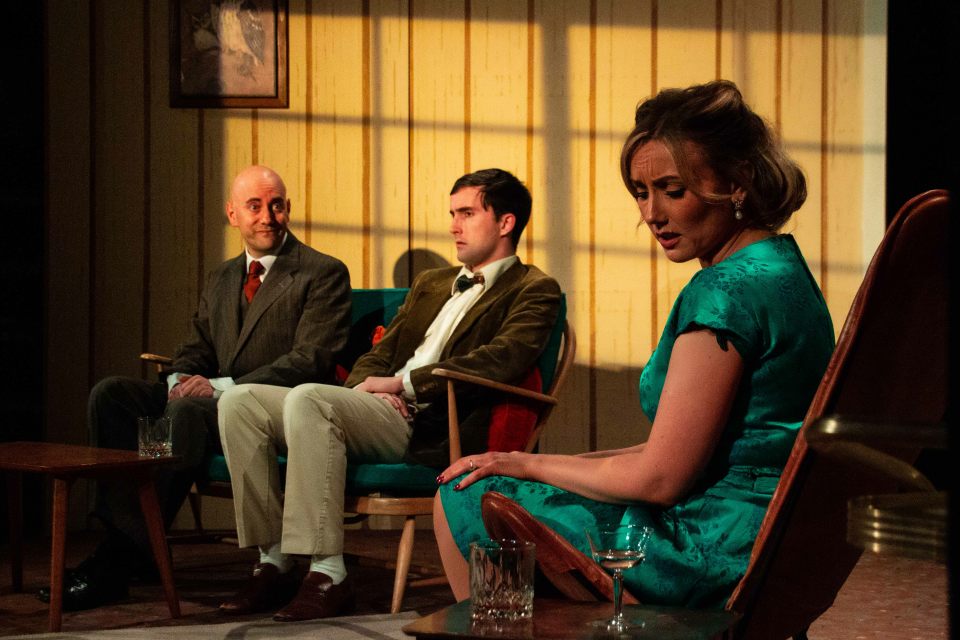
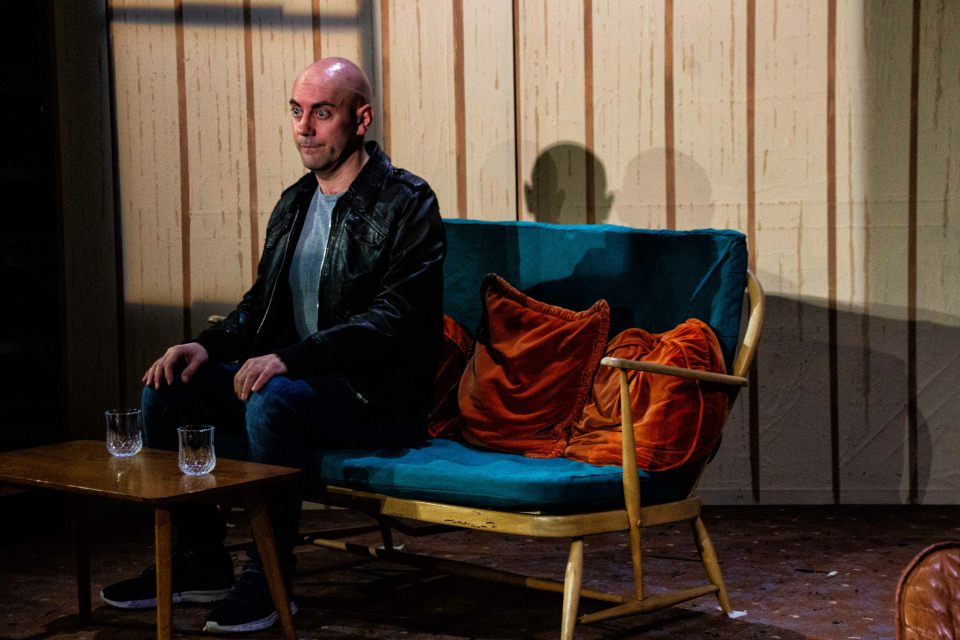
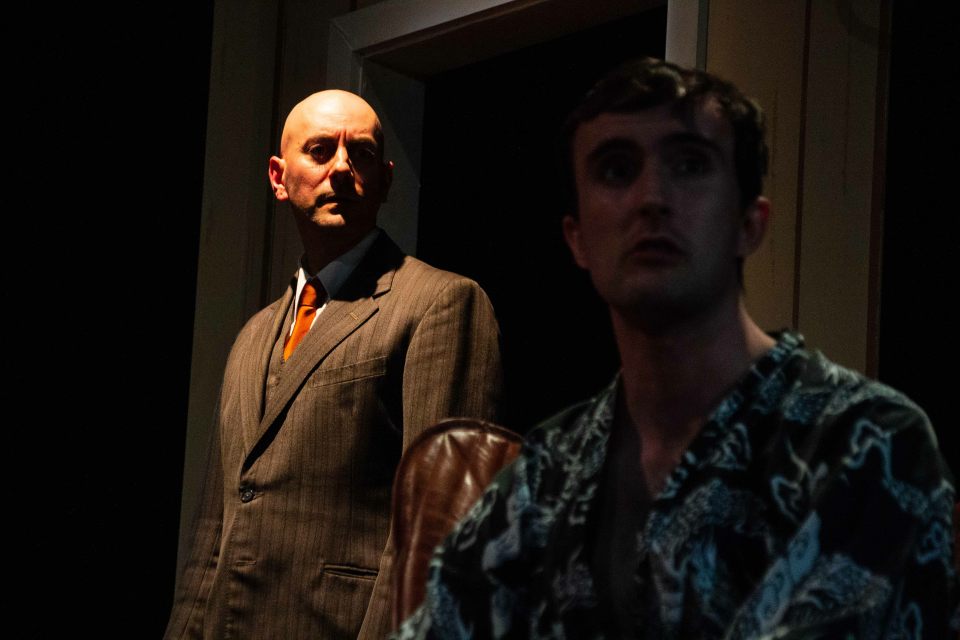
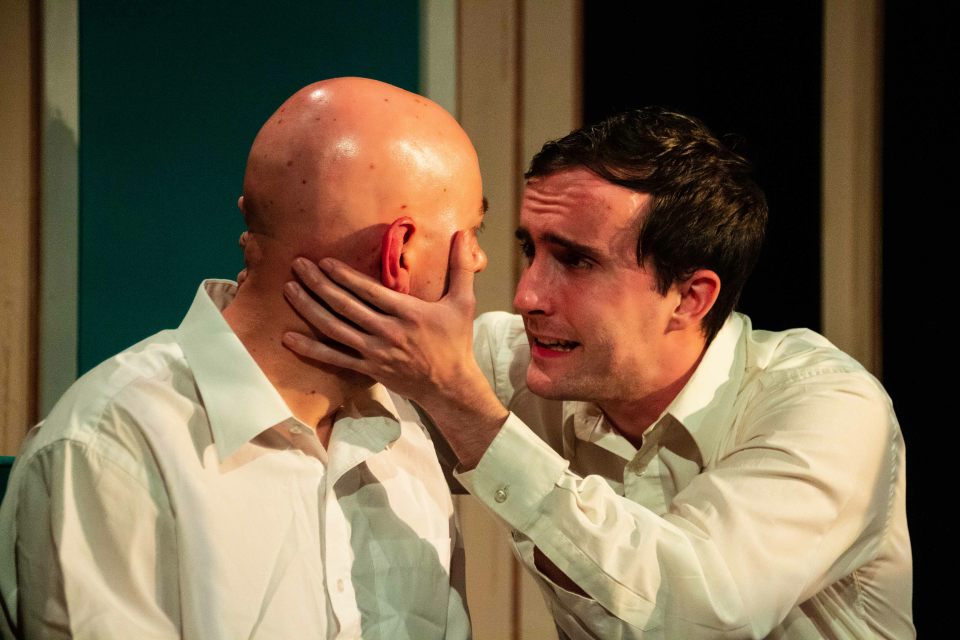
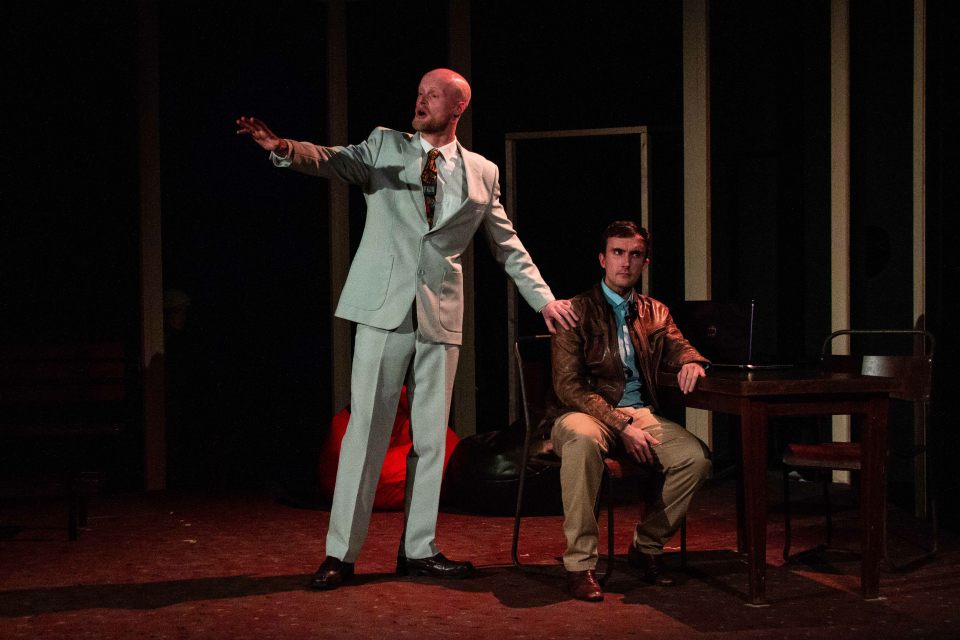
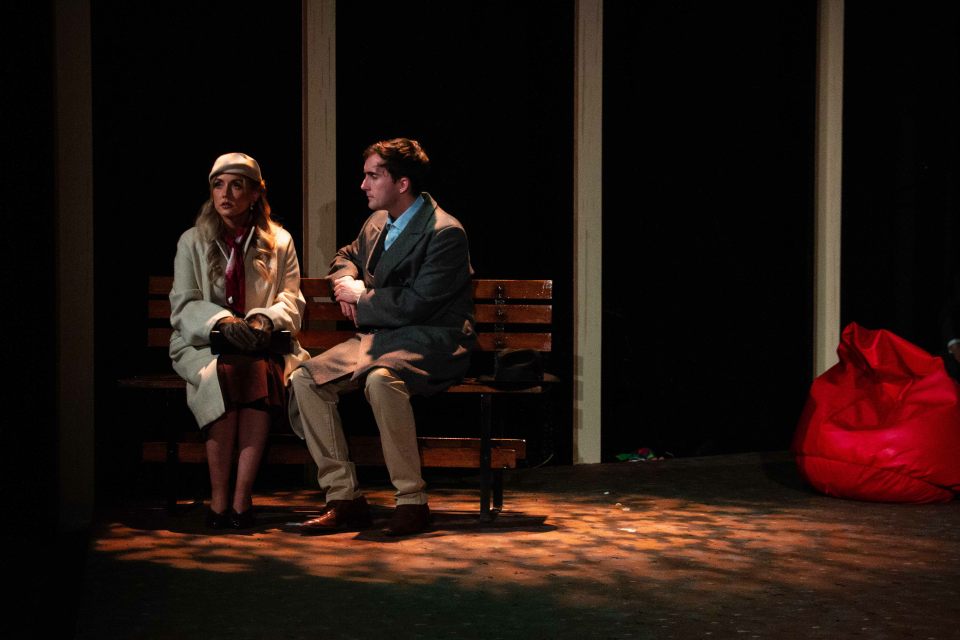
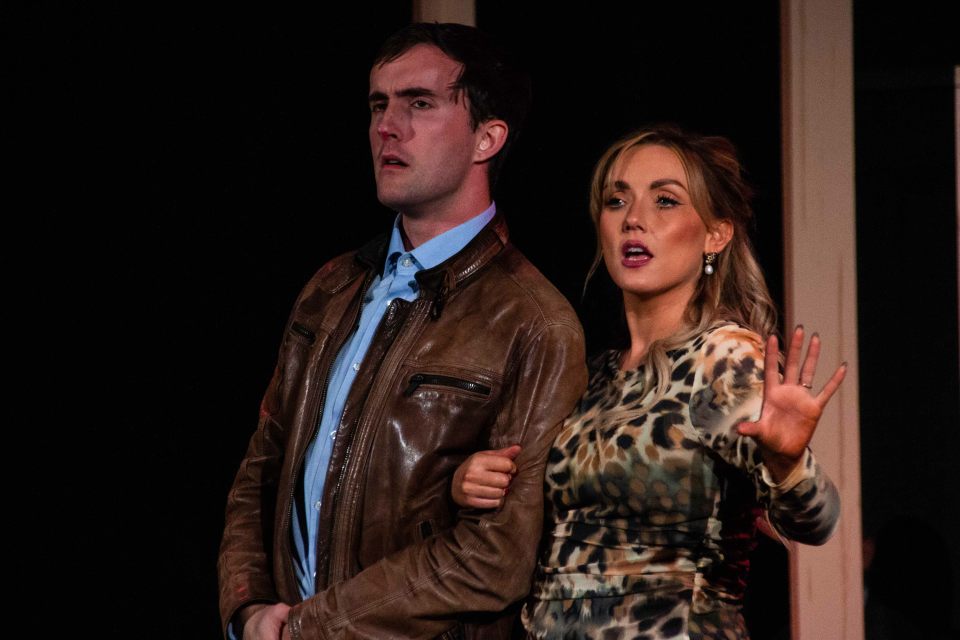
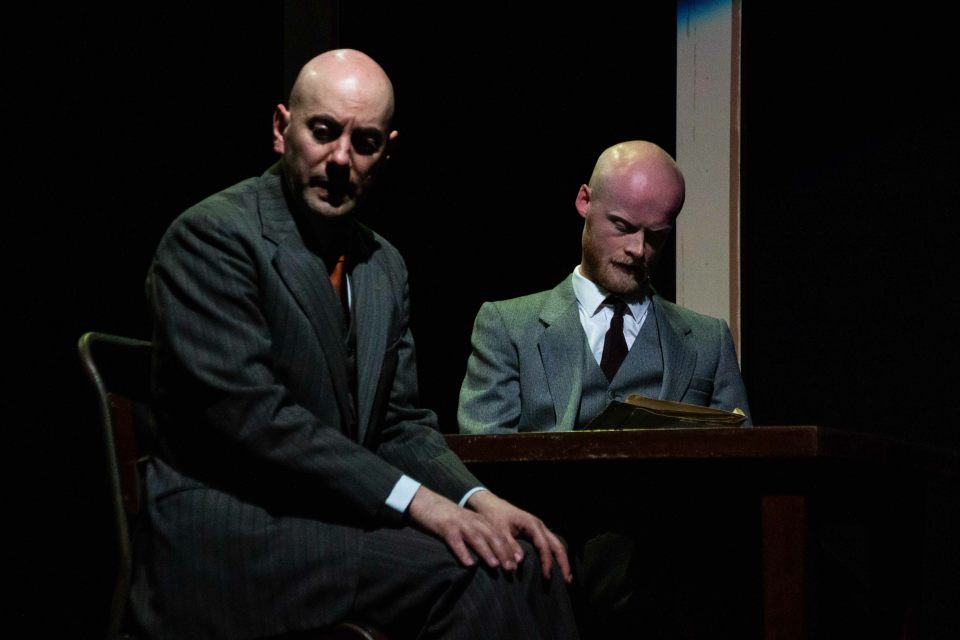
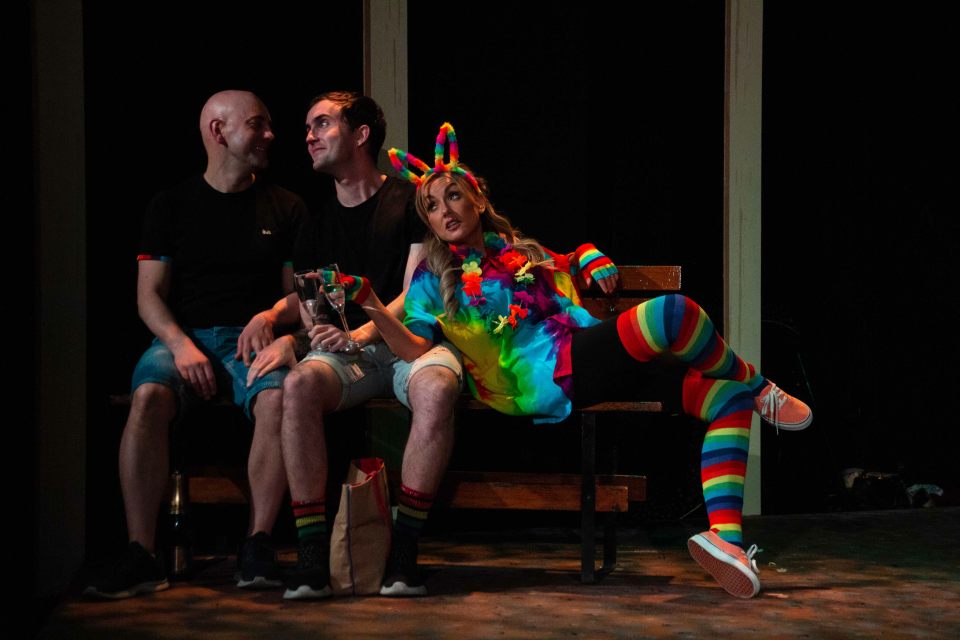
CAST
Philip
Jack Leo
Oliver
Jak Truswell
Sylvia
Danielle Easter
The Man / Doctor / Peter
Danny Shooter
There are no items to display
Review: The Pride. The Lace Market Theatre Nottingham
The Pride written by Alexi Kaye-Campbell has been especially well chosen by the Lace Market Theatre season programmers. Alongside the more familiar fare designed to attract the traditional theatre goer The Pride stands out as being a more contemporary piece about homosexual relations interestingly placed simultaneously in 1958 and 2008. It offers a feast of opportunities to use the finest standards of amateur acting and directing. It delves into subjects that perhaps some amateur groups may shy away from but are important and relatable journeys in the human experience whatever ones sexuality. As an audience member it is vital that one brings some maturity and open-mindedness to the proverbial table as the play features adult themes, scenes of outdated therapy techniques to ‘cure’ homosexuality and sexual assault. 16+ is suggested due to the nature and language of the play.
The Pride premiered at the Royal Court Theatre in London in November 2008, and received the Critics’ Circle Award for Most Promising Playwright. The production was also awarded the Laurence Olivier Award for Outstanding Achievement in an Affiliate Theatre. The play received its American premiere at the Lucille Lortel Theatre, New York, in 2010. It was revived at the Trafalgar Studios, London, in 2013. Alexi Kaye Campbell’s other plays include Apologia (Bush Theatre, London, 2009), The Faith Machine (Royal Court, London, 2011) and Bracken Moor (Shared Experience at the Tricycle Theatre, London, 2013).
If this introduction makes The Pride sound mega serious (and a goodly proportion of it is) it is balanced out with some great witty lines and funny circumstances. It is also very moving in parts and is no holds barred honest in its language.
The piece is exquisitely and sensitively directed by Chris Sims who has chosen to stage it on a brilliant set (set design by Steve Musson) that gradually deconstructs itself between the scenes from 1958 to those in 2008. As the walls fall away leaving black rectangular holes in the fabric of home and safety we are intriguingly presented with what is a essentially a compellingly strong piece of modern meta -theatre that dramatically seeks to question vastly different social rules in two eras of British history. It is an education in more ways than one and act two gives us an uncomfortable insight into what were considered okay treatments for removing homosexual desire and even endorsed by men who felt terribly guilty about their loving feelings and lusts for a same sex partner. If theatre is thought of as a champion of enlightenment then The Pride succeeds admirably.
The Pride is graced with four very fine and professional performances by Jack Leo (Philip), Danielle Easter (Sylvia), Jak Truswell (Oliver) and Danny Shooter as The man/Doctor/Peter. Other characters are alluded to. The Pride requires brave and solid acting that can take direction and enable the sometimes challenging work of depicting the interconnecting stories of gay life for men and to skip along at a good pace. This cast has all those qualities on spades and they deliver both the naturalistic and dramatic text brilliantly as well as the physical demands.
This play isn’t just about the difficulties of being homosexual. It discusses universal themes of betrayal and loneliness. Three of the key speeches come from Oliver and discuss strong hopes of change in society’s attitudes towards the Gay population and self-recognition.
OLIVER. Well, that one day, maybe many, many years from now, there will be an understanding of certain things, a deeper understanding of certain aspects of our natures that would make all the difficulties we now feel, all the fears we now hold onto and the sleepless nights we now have seem almost worthwhile… And that the people who live in those times, be it fifty or five hundred years from now will be happy with that understanding and wiser for it. Better.
OLIVER. And you said they were demanding the dignity that comes with being heard. Not responded to. Just heard. The dignity that comes with being heard. The privilege of having a voice.
OLIVER. All my life I’ve been waiting for some sort of confirmation that I’m not alone.
Sylvia expounds on the subject of truth and the daily struggle of having to live with lies. “Then the foundations of everything you’ve ever depended on, the ground you’ve moved on, the home you’ve built for yourself, everything, the walls, the furniture, the air you breathe, everything seems unreal. And you cease to be able to distinguish truth from lies. Or at least from something you know is not the truth. An appearance of sorts. Life becomes a little like some horrible fancy-dress party. And it becomes unbearable.”
This ascribed situation is very moving and good relatable writing regardless of one’s sexual persuasion. Her very last cathartic speech in the play ends on releasing the torments of blame and on a note of positivity. And this is what I carry away into the dark, cold and wet streets of Nottingham as I go homeward bound.
Read the original article here.
"The Pride" by Alexi Kaye Campbell
Nottingham Lace Market Theatre
This was the debut play by Alexi Kaye Campbell, but what a way to introduce yourself. Alternating between 1958 and 2008, "The Pride" examines changing attitudes to sexuality, looking at intimacy, identity and the courage it takes to be who you really are.
The play is a very important piece of theatre, showing the journey of LGBTQ+ history up to 2008. Please allow me to share a bit of history.
Before 1967, male adults having consensual sex together in private could be sent to prison for the offence of gross indecency which had been created in 1885. This meant that gay men could not engage in sex together without fear of prosecution - even if they did so in the privacy of their own homes. The law effectively provided a blackmailer's dream for the unscrupulous.
It took until 1967 before this law was amended, and the journey to a situation of gay equality with heterosexuals was to take far longer. It's been a long hard road for society at large to change its attitudes towards and perceptions of gay people. That battle may still not be completely won, particularly in many other countries, but "The Pride" maps the improvements, if that is the apt word, that have been made since the repressive 1950's.
The 1958 Philip is in love with Oliver, but married to Sylvia. The 2008 Oliver is addicted to sex with strangers. Sylvia loves them both.
Jack Leo plays Philip, a thirty something year old who in 1958 can't accept his homosexuality, he is married to Sylvia but has feelings for Oliver, Sylvia's work colleague. Although he is attracted to Oliver, he also resents him for bringing to the surface the urges that he can't control. In 2008 Philip is openly gay and looking for love. The final scene with Jack and Jak in 2008 will give you that warm and fuzzy feeling, very different to how the first act in 1958 draws to a close.
Jak Truswell plays Oliver who very rarely leaves the stage throughout the whole play. Oliver is Sylvia's work colleague in 1958 and it's through an invitation from Sylvia to the home to meet her husband that the initial attraction between the men spark and develop. Is this really the first time these two have met though. as there are hints that Philip and Oliver may have crossed paths previously. The later Oliver is addicted to sex with strangers after dealing with his previous break up, from Philip. What I thought was fun was that the latter Oliver was marvellously camp, but not over the top.
There is a scene where Jak is struck in the face, and that timing of the stage backhand is perfect as you wince at the sound of clashing hand on face. Sometimes you can drive a train through the two people involved with stage fights, but this was set up so well that it actually comes as a shock.
Sylvia is played by Danielle Easter and is as torn as Philip and Oliver as she loves them both. The relationship with Philip has broken down in 2008 and she is now best friend of Oliver. As with Philip's initial emotions being out of his direct control, we also acknowledge that Sylvia's loveless marriage to Philip is also due to circumstances out of her control.
The two Sylvias could not be any more different, both lovable for slightly different reasons. Listen to the end speech from Sylvia as this also brings the character full circle.
Danny Shooter completes the cast playing The Man, Peter and The Doctor. There's plenty of humour within the script, which is sensitive as well as thought provoking. Much of this humour is provided by Danny Shooter's characters, especially when discussing Oliver's possible magazine feature!
At first, I was thinking that the three main characters were the same characters in both time periods, and then I realised that, although the characters all have the same names, and there are similarities between the stories, these are two separate sets of friends depicting the changes.
The change in the set years is easy to navigate because of the costumes, but also because of the change in physicality and language from all three characters. There's no mistaking the dates of each scene.
There could be no way that I could rate any member of this cast above the other because this is obviously a cast that has worked so closely with the other to create such a comfortable cast performing scenes that at times are most definitely not comfortable to watch. There are scenes that will shock, not least in the language department. All four of these actors fit together like a four piece jigsaw to present the full picture of a play that will be talked about for a long time, especially by me.
Directed by Chris Sims, assisted by Ben Gilbert. You can feel the sensitivity that has been used to present this play on stage because there are quite a few sensitive scenes. That said, the comedy is also done incredibly well and all four have their own comedy moments to shine. Chris and Ben have balanced the whole gamut of feelings perfectly and given us a play that will give you plenty to think about, not only from historic information, but to today and the future.
Perfect timing runs all the way through this play, whether it's in the script delivery or physical timing. The timing of the gaps left between the speeches is also left just long enough to create nervous tension in the play.
The Set Design by Steve Musson is interesting. We start with a classy 1950's style apartment set - by the way, I love that drinks trolley, and with every scene, sections are removed. Saying that, by the end of the play the stage does not look empty, just very different to how it all started, possibly a simile for the journey taken in the play.
Lighting Design by David Billen and Sound Design is by Darren Coxon, both complementing and underscoring the content of the play.
In charge of the costumes is Max Bromley. from the suits and bow ties to the casual and colourful Pride costumes, and everything in between, they help to determine the time period in any particular scene. Master Max wins again.
Some scenes may not be for people with a sensitive disposition and there is partial nudity on stage, but for anyone who likes a powerful story that packs a punch, this is most definitely for you
Read the original article here.

